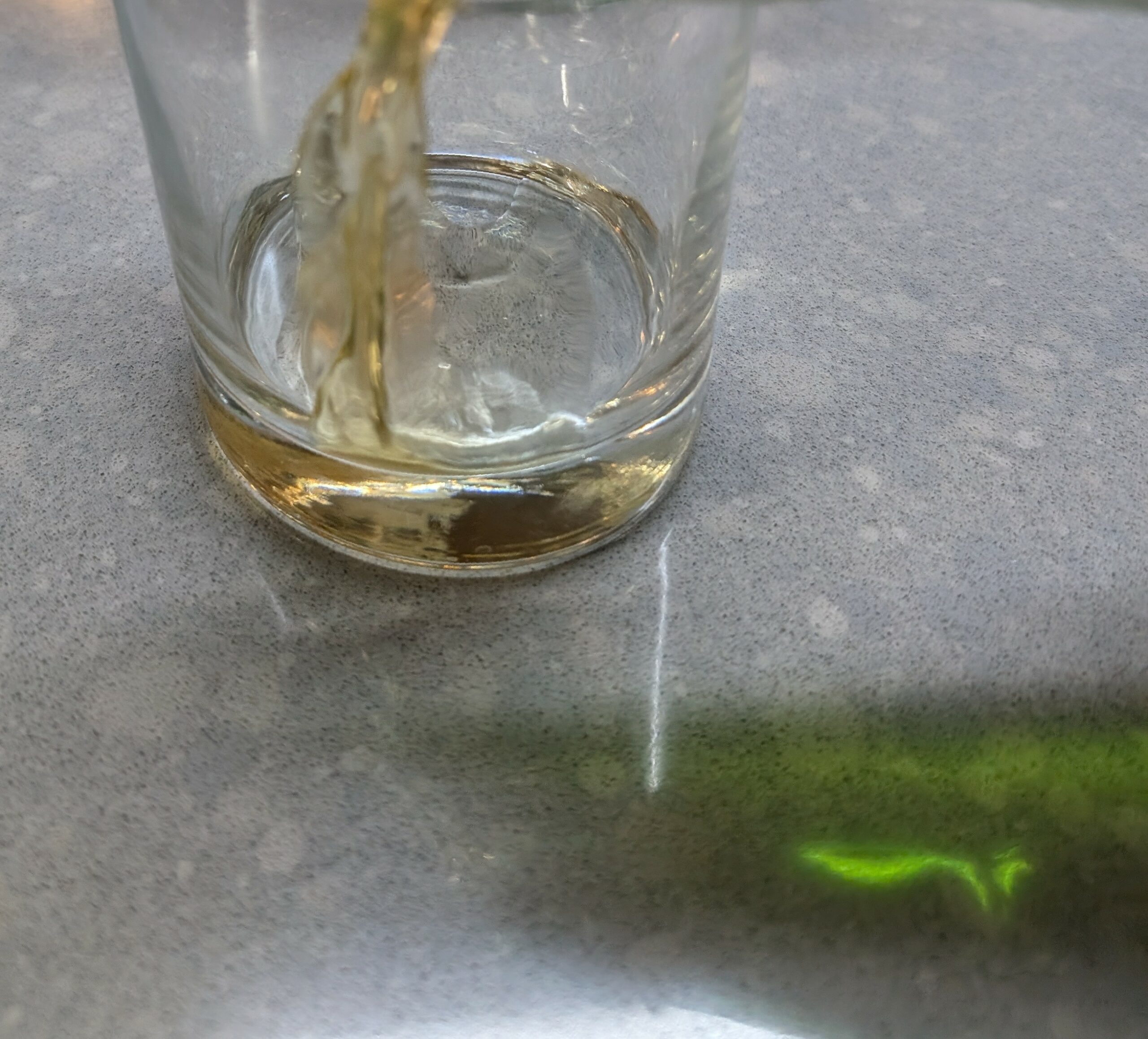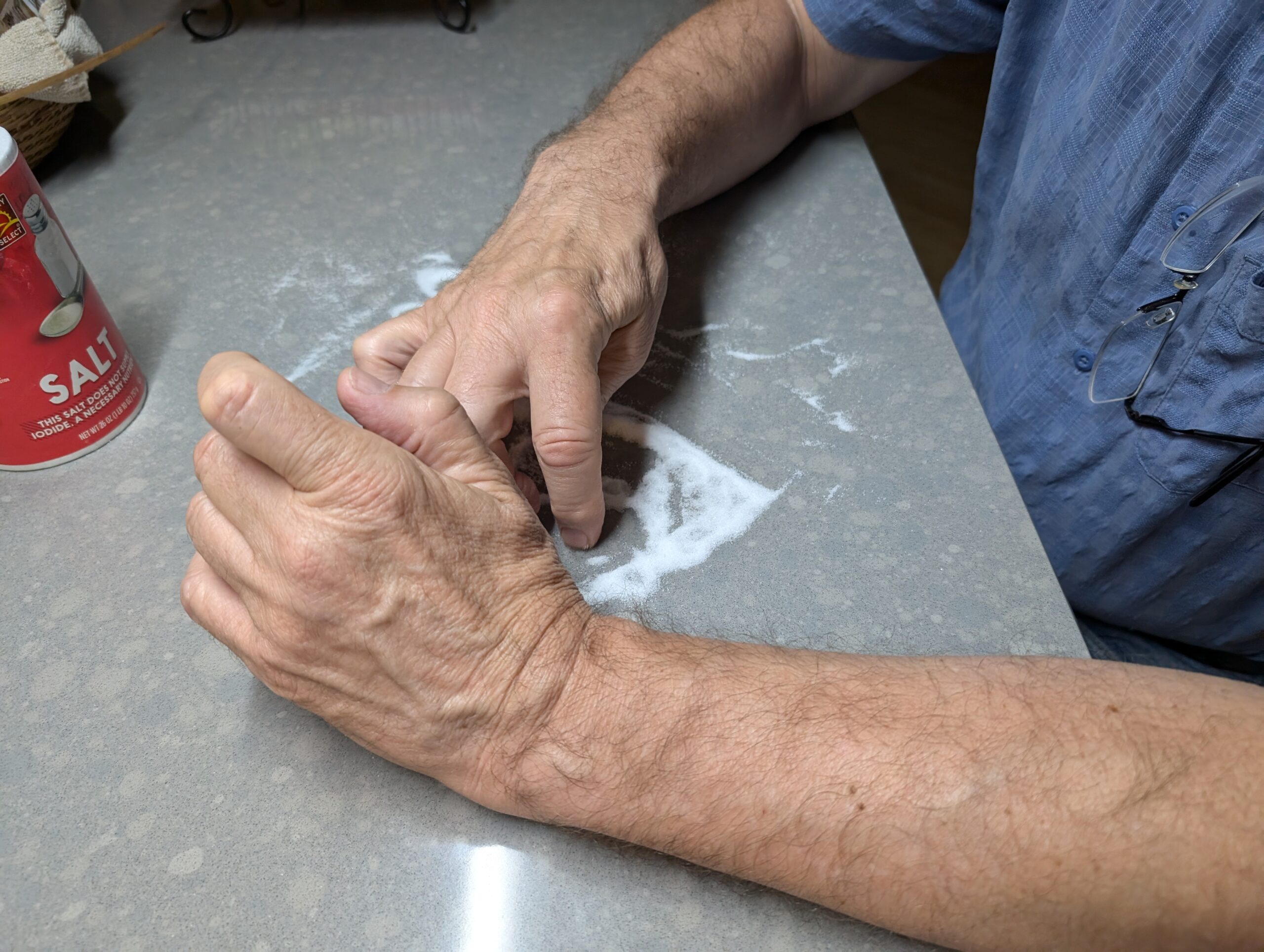50 Give or Take, May 9, 2025 A pastor and social activist for his lifetime,…

“Angelo Avenue Angels”
Pacific Journal, Fall 2022
When I first met him, Doug was living on Angelo Avenue in East Oakland where he shared a street with a bunch of bikers (Hell’s Angels, no less) and one old woman with dementia. It was an odd situation, a bit unnerving. My midwestern impression of biker gangs came from television shows like Rockford Files where Jim is surrounded by long-haired, heavily-tattooed men slouching on their Harleys and taunting him. The rest of what I thought I knew came from news reports of Sonny Barger, crime sprees with sawed-off pool cues as weapons, murders, drugs, and such like. A sign down the street read, “No Parking Except Authorized Hell’s Angels.” I thought it was an attempt at a joke, but I wasn’t sure it was funny.
Doug was a skinny, intellectual, flute-playing pacifist. The polar-opposite of men in biker gangs. The fact that these guys were his neighbors didn’t concern to him, however. “They leave me alone and I leave them alone,” he told me. “Besides, I don’t have to worry about anyone stealing my old Corolla. People are afraid to drive down this street.”
Their denim jackets sported One-Percent and Death Head insignias, and of course, they all rode Harleys. They were bearded, long-haired men with gravelly voices, whose chain-smoking women followed them around. They told crude jokes (mostly about women, sex, and liberals) and we seldom saw them without an open can of Coors beer in hand. The Coors stood out to me, because this was when we were getting into a boycott of the company, reading up on Joseph and William Coors’ support for the Moral Majority and the Nicaraguan Contras, their union-busting tactics, and flagrantly racist statements about minorities.
The street was narrow and they used it not only to park, but also to work on their bikes, making it difficult to maneuver around the bikes and wrenches and tires that filled the street. When we sat on the front steps to escape the heat and cockroaches in Doug’s studio apartment, I aimed for minimal eye contact. Not Doug. Normally a bit shy, he brushed it aside to say hi and ask for advice on repairing his Toyota. “Why would you do that?” I nagged, worrying that it was naive of him, or worse, just plain crazy. These were proud-to-be-driving-American men who made it clear that they supported President Reagan because, “He kicked the asses of those spineless weaklings up at Berkeley.” The rest of what they said about “those spineless weaklings” was a bit more, shall we say, colorful.
I wasn’t really afraid of them; I just thought there were some barriers one simply did not cross. On the other hand, I also held to some amorphous ideal about the unity of all humanity. This, I must admit, created a bit of an internal dilemma and struggle for me.
I lived there one summer, exploring the Bay Area while Doug worked. In the mornings on my way to the bus stop, I often passed the little old woman in a small, immaculate yard behind a white picket fence. She lived across the street from Jim, the Angel in charge of most things that happened on the street. Her name was Gerda and she would chatter as long as I stood and listened. Mostly, she talked about her dead husband who, at times, was alive and well in her stories and in her mind.
Her other topic was that the FBI was after her, hiding in her bushes. Somewhere during the conversation, she would hand me a handful of small pebbles and ask me to please help her run them off her property. I’d accept her pebbles and then watch while she waged her campaign to rid her yard and this entire street of the G-Men who were out to get her. She pelted and tossed, although what ran out of the bushes and down the street were just her many cats.
Over time, I began to notice that it was the Hell’s Angel guys who trimmed her bushes and mowed her lawn. Several times I saw them replacing one of her windows when her anti-government missile had missed the intended target and shattered her own glass instead. I worked up the courage to ask Jim about it one day.
“No,” he told me, “she’s no relation to any of us. She was here when we got here. In fact, she’s been here since she got married back in ‘41, just before the war. But her own damned kid doesn’t visit no more, not even at Christmas. If I ever see him, I plan to tell him what I think of him.”
One evening when Doug and I were getting ready to go see Kiss of the Spider Woman at the University Avenue Theatre, we heard the siren of an ambulance coming closer. It stopped at Gerda’s place, so we wandered down to see what was going. She had fallen and broken her hip. Jim was barking orders to the irritated EMTs, giving not-so-polite admonitions to be careful with her, demanding meticulous care. He held Gerda’s hand, assuring her that everything would be alright. “We’ll feed your cats,” he promised her. “Just you get better and get back here before they miss you. And while you’re gone, we’ll keep those damned G-Men out of your bushes, too.”
“You’re such a good boy,” Gerda told this aging biker.
After the ambulance left, everyone began to dribble back to their own porches. It would be impossible to catch the movie as we had planned, but we thought we could still make the late show, so we turned to go, too.
“Hey, wait,” Jim barked after us. Walking back toward him, I held back a hysterical giggle, wondering what he could possibly want. Was he angry with us? Had we said something wrong to Gerda? Was he tired of our bumper sticker for world peace? Standing in front of me, his 6 feet-2 inch, 220-pound frame blocking the streetlight behind him, I searched for some clue but found nothing.
When we got closer, he spoke again, “Baked some cherry crisp this afternoon. Come have some with me.”



